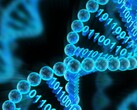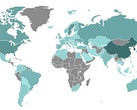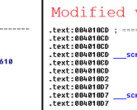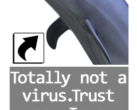Scientists have already managed to alter DNA sequences in human embryos in order to fix a disease gene, so the technology to alter human traits is already here, even though human ethics might prohibit such experiments. However, a group of scientists from the University of Washington claims that they can infect computers using modified human DNA strands. The biohackers presented their research at the USENIX Security conference, demonstrating how pieces of malicious software code can be spliced onto strands of human DNA and used to infect the computers connected to the gene sequencer.
In a Wired interview, the biohackers unveiled that the attack works similar to storing malware on a USB drive that is designed to infect a computer that reads it. The bio-malware is encoded into the physical strands of DNA so that when the sequencer analyzes it, the resulting data becomes an actual malicious file. Another way to infect computers described by the scientists is to provide malicious DNA to law enforcement agencies and corrupt incriminating evidence along with the hardware.
Even if the DNA sequencers are not widely used now, the proof-of-concept put together by the Washington University scientists still needs to be addressed. In a future where DNA sequencers are used to build healthcare patient databases, hackers could use this sort of virus to steal private medical information.
Loading Comments
Previous article
Microsoft Windows 10 Pro for Workstations coming this fallNext article
No Nougat updates for the Lenovo Phab lineupI first stepped into the wondrous IT&C world when I was around seven years old. I was instantly fascinated by computerized graphics, whether they were from games or 3D applications like 3D Max. I'm also an avid reader of science fiction, an astrophysics aficionado, and a crypto geek. I started writing PC-related articles for Softpedia and a few blogs back in 2006. I joined the Notebookcheck team in the summer of 2017 and am currently a senior tech writer mostly covering processor, GPU, and laptop news.
> Expert Reviews and News on Laptops, Smartphones and Tech Innovations > News > News Archive > Newsarchive 2017 08 > Biohackers splice malware directly into DNA strands
Bogdan Solca, 2017-08-11 (Update: 2017-08-11)














